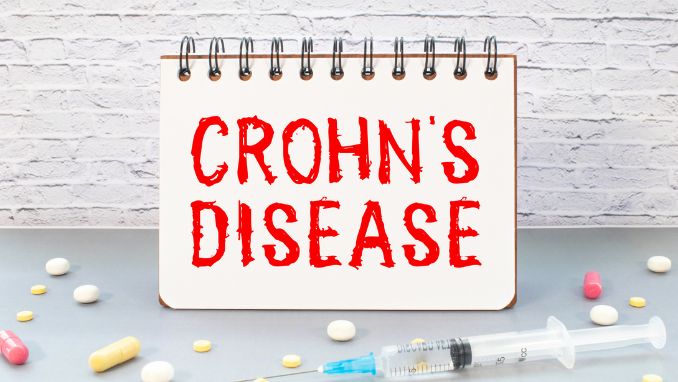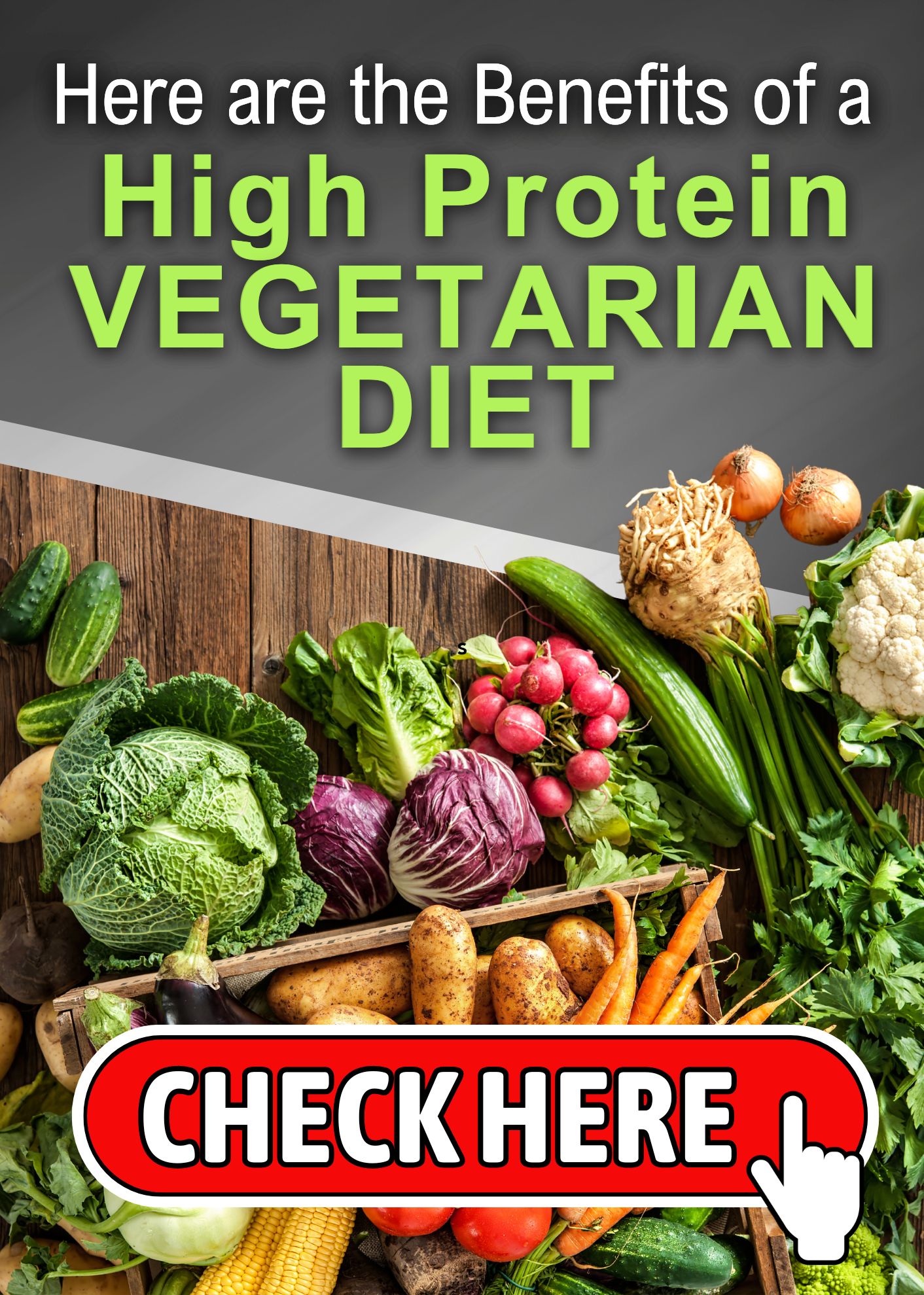Crohn’s Disease And Diet: Finding the Right Balance

Last updated on April 4th, 2025 at 06:28 pm
Having a healthy digestive tract is important for proper digestion and nutrient absorption and is vital in maintaining overall health and well-being. A healthy gut means a healthy immune system, a better mood, and more energy for the day. But let’s face it, with the influx of fast foods and easy meals. Many people struggle to maintain a healthy gut and have digestive tract-related illnesses or inflammatory bowel diseases such as Crohn’s Disease. That's why we have Crohn's Disease Diet Plan for you on your way to being healthy.
What Is Crohn’s Disease?
Crohn’s disease is a type of chronic inflammatory bowel disease (IBD) that causes inflammation in the digestive tract, leading to a wide range of symptoms and complications. It can affect any part of the digestive tract, from the mouth to the anus, and it can also involve other organs, such as the skin, eyes, and joints.
Crohn's disease is a medical condition that can vary depending on factors such as region, age, gender, and ethnicity. It's more frequently observed in developed countries as compared to developing nations. A systematic review published in the Journal of Crohn's and Colitis in 2020 estimated that the global prevalence of Crohn's disease in the general population is around 0.3-0.4%. However, certain countries like Canada, the United States, and Europe have a higher prevalence of up to 1%. Similarly, the estimated incidence of Crohn's disease globally is approximately 3-20 per 100,000 people per year. At the same time, some countries like Canada, the United States, and Europe have an incidence rate as high as 27 per 100,000 per year, as per the same systematic review.
Common Symptoms Of Crohn’s Disease
The exact cause of Crohn’s disease is not yet fully understood, but it is thought to be a combination of genetic, environmental, and immune system factors. Common symptoms include abdominal pain, diarrhea, fatigue, weight loss, and malnutrition. There is no cure for Crohn’s disease, but various treatments are available to manage the symptoms and reduce inflammation.
Causes And Triggers Of Crohn’s Disease
The development of Crohn’s disease is likely to involve a complex interplay between genetic and environmental factors, and different people may have different triggers for their disease. Moreover, identifying the specific factors contributing to Crohn’s disease’s development is an area of active research and may lead to more targeted and effective treatment in the future.
A. Genetic Factors
-
-
Family History
-
People with a first-degree relative (parent, sibling, or child) who has Crohn’s disease are at a higher risk of developing the disease.
-
-
Genes
-
Multiple genes have been identified that are associated with an increased risk of developing Crohn’s disease, including genes involved in the immune system and inflammation.
B. Environmental Factors
-
-
Diet
-
Some researchers suggest that a diet high in sugar, fat, and processed foods may increase the risk of developing Crohn’s disease.
-
-
Smoking
-
Smoking has been found to increase the risk of developing Crohn’s disease and the severity of symptoms.
-
-
Antibiotic
-
Antibiotics, particularly in childhood, have been associated with an increased risk of Crohn’s disease.
C. Immune System Response
The immune system plays a key role in developing Crohn’s disease; the immune system mistakenly attacks the lining of the digestive tract, causing inflammation and damage. This inflammation can eventually lead to a range of symptoms, including abdominal pain, diarrhea, and fatigue.
Crohn’s Disease Diet
Crohn's Disease Diet Plan plays an important role in managing the symptoms of Crohn’s disease. However, the specific dietary recommendations may vary depending on the individual and the stage and severity of their disease.
An individualized diet plan is crucial for managing various health conditions, particularly inflammatory bowel disease (IBD), such as Crohn’s disease and ulcerative colitis. These conditions require careful consideration of specific nutrients, such as calcium-rich foods, to prevent deficiencies and complications.
Collaborative approaches between healthcare providers and patients are vital to developing effective individualized diet plans that consider the patient’s lifestyle, preferences, and medical history.
1. Low Fiber Diet
This Crohn's Disease Diet Plan is usually recommended temporarily during a flare-up. The diet also limits the amount of fiber and other indigestible materials that pass through the digestive system. It can indeed help reduce diarrhea, abdominal pain, and other symptoms associated with Crohn's disease.
Foods to avoid and include:
-
-
Raw fruits And Vegetables
-
These can be difficult to digest and may cause gas and bloating. Instead, try cooking your fruits and vegetables to make them easier to digest.
-
-
Whole Grains
-
Avoid whole grains, such as brown rice and whole wheat bread, which can be high in fiber and difficult to digest. Instead, choose refined grains like white rice and white bread.
-
-
Nuts And Seeds
-
These can be difficult to digest and may irritate the lining of your digestive tract.
-
-
Tough Meats
-
Avoid tough cuts of meat, such as beef or pork, which can be difficult to digest. Instead, choose lean meats like chicken or fish.
-
-
Dairy Products
-
Dairy products can be difficult to digest for some people with Crohn's disease. If you're lactose intolerant, avoid milk, cheese, and other dairy products.
Sample Meal Plan
Breakfast:
-
- Scramble Eggs or egg white omelet
- White Toast or Bagel with butter or margarine
- Low-fiber fruit juice such as apple or grape juice
Snack:
-
- Low-fat yogurt
- Smooth peanut butter
- Rice cakes or crackers
Lunch:
-
- Grilled Chicken or Turkey breast
- White rice or plain pasta with olive oil or butter
- Cooked peeled vegetables such as peeled carrots and zucchini.
Snack:
-
- Low-fat cottage cheese
- Pudding or gelatin
Dinner:
-
- Broiled Fish
- Mash Potatoes
- Cooked peeled vegetables such as green beans or squash.
- Low-fiber fruits such as peeled peaches or pears.
A low-fiber diet can be an effective tool for managing Crohn's disease symptoms, especially during the episode of attack. Moreover, limiting high-fiber foods and eating smaller, more frequent meals can help reduce inflammation and irritation in the digestive tract, leading to improved quality of life. Also like always, working with a healthcare professional or registered dietitian is important to develop a plan that meets your needs.
2. Specific Carbohydrate Diet (SCD)
The specific Carbohydrate Diet (SCD) as one of the Crohn's Disease Diet Plan, is the dietary approach used by some people with Crohn’s disease to help manage symptoms. Furthermore, SCD is based on the principle that certain types of carbohydrates are not easily digestible and can be harmful bacteria in the gut, leading to inflammation and other symptoms. The diet aims to eliminate these carbohydrates while promoting the consumption of nutrient-dense, easy-to-digest foods.
Here are the main principles of the SCD:
Allowed Foods
-
- Fresh Fruits and vegetables (excluding starchy vegetables like potatoes and corn)
- Meat, poultry, and fish
- Eggs
- Nuts and nut butter (excluding peanuts)
- Fermented dairy products such as yogurt and aged cheese.
- Honey
Foods To Avoid:
-
- Grains and grain-based products (including bread, pasta, and cereal
- Legumes (including beans, lentils, and peanuts)
- Starchy vegetables (including potatoes, sweet potatoes, and corn)
- Processed and refined sugars and artificial sweeteners
- Processed and packaged foods
Sample Meal Plan
Breakfast:
-
- Scrambled eggs with spinach and tomatoes
- Fresh fruit such as berries or melon
- Freshly squeezed orange juice
Lunch:
-
- Grilled Chicken or fish with mixed greens and vegetables
- Homemade vinaigrette dressing
- Fermented dairy products such as yogurt or aged cheese
Snack:
-
- Apple slices with almond butter
- Banana with almond milk and honey smoothie
Dinner:
-
- Beef or vegetable stew with root vegetables and herbs
- Steamed broccoli or other non-starchy vegetables
- Honey-glazed carrots.
It is important to note that SCD may not be appropriate for everyone, and it’s important to work with a healthcare provider or registered dietitian to determine if the diet is right for you and to ensure that it meets your nutritional needs.
3. Mediterranean Diet
This Crohn's Disease Diet Plan is recommended once the flare-up subsides. This diet is rich in fruits, vegetables, whole grains, healthy fats like olive oil and nuts, and lean proteins like fish and chicken. It has indeed been shown to reduce inflammation in the body and may benefit people with Crohn's disease.
The key components of the Mediterranean diet include:
-
-
Plant-Based Foods
-
The Mediterranean diet is rich in fruits, vegetables, whole grains, legumes, and nuts. These foods are high in fiber and essential nutrients that support digestive health.
-
-
Healthy Fats
-
The Mediterranean diet emphasizes healthy fats like olive oil, avocados, and nuts. These fats are anti-inflammatory and can help reduce inflammation in the digestive tract.
-
-
Lean Proteins
-
The Mediterranean diet includes lean proteins like fish, chicken and plant-based sources like legumes. These proteins are easier to digest than red meat and can help reduce inflammation in the gut.
-
-
Limited Intake Of Processed Foods
-
The Mediterranean diet limits processed foods like sugary drinks, processed meats, and fast food. These foods can aggravate symptoms of Crohn's disease and should be avoided.
-
-
Moderate Alcohol Consumption
-
The Mediterranean diet allows for moderate alcohol consumption, primarily red wine. Red wine has anti-inflammatory properties that can help reduce inflammation in the gut.
Here Is A Sample Mediterranean Meal Plan For People With Crohn's Disease:
Breakfast:
-
- Greek yogurt with berries and nuts
- Whole grain toast with avocado and smoked salmon
- Omelette with spinach, tomatoes, and feta cheese
Snack:
-
- Hummus with veggies or whole grain crackers
- Fresh fruit with almond butter
Lunch:
-
- Salad with mixed greens, grilled chicken, cucumber, tomato, olives, and feta cheese
- Grilled fish with roasted vegetables and quinoa
- Whole grain wrap with grilled veggies, hummus, and chicken or tofu
Snack:
-
- Greek yogurt with honey and granola
- Rice cakes with almond butter and banana
Dinner:
-
- Grilled chicken or fish with roasted sweet potatoes and broccoli
- Lentil soup with a side salad
- Whole grain pasta with tomato sauce, roasted veggies, and ground turkey or lentils
Dessert:
-
- Fresh fruit with Greek yogurt and honey
- Dark chocolate with almonds
People with Crohn's disease need to avoid trigger foods that can aggravate their symptoms, such as spicy foods, dairy products, caffeine, and alcohol. Staying hydrated by drinking plenty of water throughout the day is also important.
4. Elemental Diet (Liquid Diet)
This Crohn's Disease Diet Plan involves consuming liquid formulas that contain all the nutrients needed for the body to function. It is often used as a short-term solution to help reduce inflammation in the gut and allow it to heal.
Foods to Avoid:
-
- Fiber-rich Foods
Fiber is an essential nutrient for maintaining good digestive health, but it can be hard to digest for people with Crohn's disease. Foods high in fiber, such as whole grains, beans, nuts, and seeds, can worsen inflammation and aggravate symptoms. Therefore, avoiding these foods while on an elemental diet is best.
-
-
Dairy Products
-
Dairy products such as milk, cheese, and yogurt are rich in lactose, a type of sugar that can be hard to digest for some people with Crohn's disease. Additionally, these foods can trigger inflammation and worsen symptoms. Therefore, avoiding dairy products while on an elemental diet is best.
-
-
Spicy Foods
-
Hot peppers, chili powder, and curry can irritate the digestive tract and worsen symptoms in people with Crohn's disease. Therefore, avoiding spicy foods while on an elemental diet is best.
-
-
Alcohol
-
Alcohol can irritate the digestive tract and cause inflammation in people with Crohn's disease. Therefore, it's best to avoid alcohol while on an elemental diet.
Foods to Include:
-
-
Protein-Rich Foods
-
Protein is essential for maintaining muscle mass and promoting healing in people with Crohn's disease. Protein-rich foods such as lean meats, fish, eggs, and tofu are easily digestible and provide the necessary nutrients for healing the digestive tract.
-
-
Low-Fiber Fruits And Vegetables
-
Fruits and vegetables are essential to a healthy diet, but people with Crohn's disease need to be careful about which ones they consume. Low-fiber fruits and vegetables, such as bananas, melons, cooked carrots, and green beans, are easily digestible and provide the necessary vitamins and minerals.
-
-
Healthy Fats
-
Healthy fats such as olive oil, avocado, and nuts are essential for maintaining good health and reducing inflammation in people with Crohn's disease. These foods are easily digestible and provide the necessary nutrients for healing the digestive tract.
-
-
Probiotic Foods
-
Probiotic foods such as yogurt, kefir, sauerkraut, and kimchi are rich in beneficial bacteria that can help maintain healthy gut flora and reduce inflammation in people with Crohn's disease.
The elemental diet plan may challenge some individuals due to its high cost and liquid-only requirements. In addition, it is not suitable for everyone and should not be considered a long-term solution for Crohn's disease. While it can effectively reduce symptoms in the short term, it is not sustainable over a long period. It is crucial to seek the advice of a healthcare professional, such as a registered dietitian, to ensure that all nutritional needs are met while on this diet.
Lifestyle Modification
-
Diet modification
One of the most effective ways to manage Crohn's disease is through diet modification. Certain foods like dairy products, spicy foods, caffeine, and alcohol can aggravate the symptoms of Crohn's disease. Moreover, eating smaller, more frequent meals and avoiding foods that trigger symptoms can help reduce inflammation and improve digestion.
-
Stress management
Stress can trigger or worsen Crohn's disease symptoms. Therefore, learning stress management techniques such as meditation, yoga, deep breathing exercises, or regular exercise can help manage the symptoms of Crohn's disease.
-
Regular exercise
Exercise is important for overall health and well-being. Regular exercise can help reduce inflammation and improve digestion, mood, and energy levels. However, people with Crohn's disease should avoid high-impact exercise or activities that may cause abdominal pain.
-
Avoid smoking
Smoking is not only bad for your overall health but also worsens Crohn's disease symptoms. Quitting smoking can help improve digestive health and reduce inflammation in the body.
-
Medication Adherence
Taking medications as prescribed by your doctor is crucial for managing Crohn's disease symptoms. Skipping medication or changing dosage without consulting your doctor can lead to complications or exacerbate symptoms.
Conclusion
Living with Crohn's disease can be challenging, especially when managing your diet. Keeping a close eye on what you eat is crucial, as certain foods can worsen inflammation and trigger symptoms. However, it's important to remember that with the right care team in place, you can develop a personalized plan to effectively manage your symptoms and improve your overall quality of life.
It is crucial to remember that dealing with Crohn's disease is not a solitary journey. There are ample resources available, such as support groups, virtual communities, and advocacy organizations, to assist individuals with Crohn's disease. Connecting with others who share similar experiences can be immensely beneficial in terms of emotional support and practical advice.
In the end, while coping with Crohn's disease can be difficult, it is important to concentrate on the aspects within your control. By closely collaborating with your healthcare team and making necessary changes to your lifestyle and diet, you can effectively manage your symptoms and lead a gratifying life.
It's time to manage your symptoms of Crohn's Disease based on your individualized diet plan with our Master Guide to Vegetarianism! Order now!
Rick Kaselj MS, is a leading kinesiologist and injury specialist as well as co-creator of the best-selling Unlock Your Hip Flexors program. Rick creates exercise programs that help people heal injuries and eliminate pain, so they can go back to living a full, active, healthy life.












